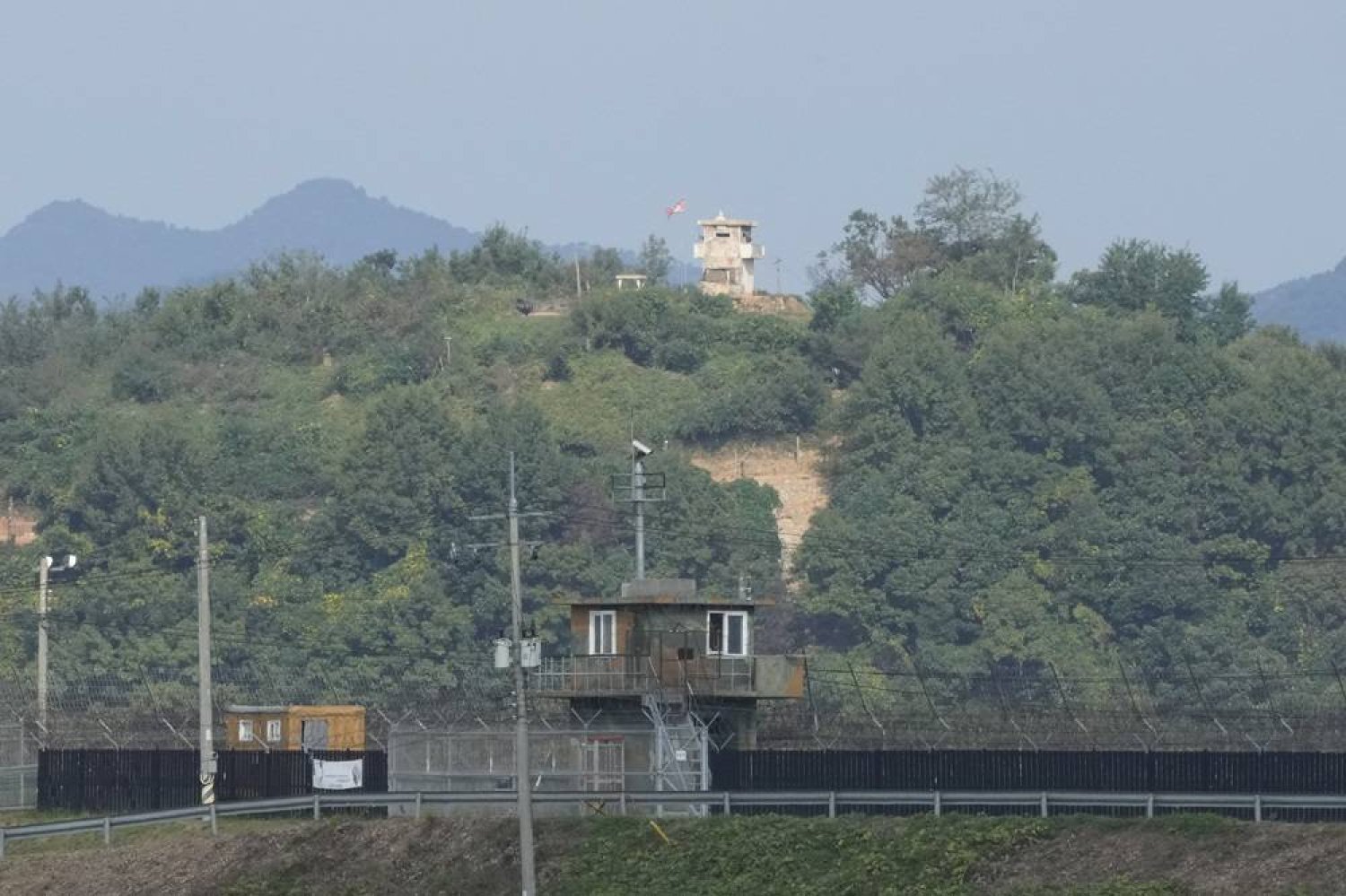Border on the Brink: North Korea Poised to Destroy Cross-Border Links Amid Drone Accusations
USA NEWS – Tensions between North and South Korea are escalating rapidly as North Korea prepares to destroy cross-border roads in response to alleged drone incursions. According to South Korean military reports on Monday, North Korean troops have been seen working under camouflage near the Demilitarized Zone (DMZ), with preparations underway to detonate roads on the western and eastern coasts. This move comes amidst heightened accusations from Pyongyang, claiming that South Korea has sent drones over its capital. The increasing hostility follows North Korea’s recent declaration to sever all cross-border road and railway links, emphasizing its intention to fortify its side of the border.
North Korea’s rhetoric escalated further last Friday, accusing the South of launching drones carrying anti-North propaganda leaflets over Pyongyang. North Korean state media, KCNA, labeled this act a severe political and military provocation, warning that such actions could lead to an armed conflict. The situation is further complicated as South Korean authorities have declined to confirm or deny the drone allegations. Lee Sung-jun, a spokesman for the South’s Joint Chiefs of Staff, refused to respond to inquiries, citing concerns that addressing the claims would play into North Korea’s hands, potentially justifying future provocations from Pyongyang.
Over the weekend, North Korea issued more aggressive warnings, threatening severe consequences if any South Korean drones were detected again. They declared that eight artillery units, fully armed and stationed at the border, were ready to respond with open fire. The North’s defense ministry also claimed that drones spotted over Pyongyang earlier in the month were of a type that required specialized launchers or runways, suggesting they couldn’t have been launched by civilian groups. This statement aims to dismiss the notion that anti-regime activists might have been responsible for the drone flights, shifting blame squarely onto the South Korean military.
South Korea’s military has been cautious in its responses, seeking to avoid escalating the situation further. However, Lee Sung-jun emphasized that the South has been bolstering its anti-drone defenses since 2022, following an alarming incident when five North Korean drones entered South Korean airspace, flying over Seoul for several hours. The risk of drones being used as political tools between the two countries has become a significant concern, as technology enables even civilians to access drones with the range to reach Pyongyang, raising fears of more frequent cross-border incidents.
Military experts, like Lee Kyoung-haing from Jungwon University, highlight that civilian-operated drones could easily fly the distance from South Korea to Pyongyang, carrying lightweight payloads like propaganda leaflets. This makes the current situation more volatile, as it’s difficult to determine whether such provocations are driven by military actions or civilian activism. Nonetheless, the North’s accusations are intensifying, adding another layer of complexity to the already strained inter-Korean relations.
The ongoing feud between the two Koreas has deep historical roots, as the two nations remain technically at war. Their 1950-53 conflict ended with an armistice rather than a formal peace treaty, leaving the DMZ a heavily fortified and symbolically charged zone. The current tensions reflect a regression from previous attempts at reconciliation, including the landmark 2018 summit where both sides pledged to end hostilities and pursue peace. However, North Korea has gradually dismantled the progress made during that period, reinstalling heavy weapons in the DMZ and reestablishing military guard posts that were initially removed under the 2018 agreements.
As North Korea now prepares to destroy cross-border infrastructure and continues its military posturing, hopes for renewed peace talks appear dim. The volatile situation around the DMZ underscores the fragility of inter-Korean relations, where diplomatic progress can be easily undone by perceived provocations or political maneuvering. With both sides ramping up their military readiness, the risk of miscalculation is growing, raising fears of a potential clash along the world’s most heavily fortified border.
